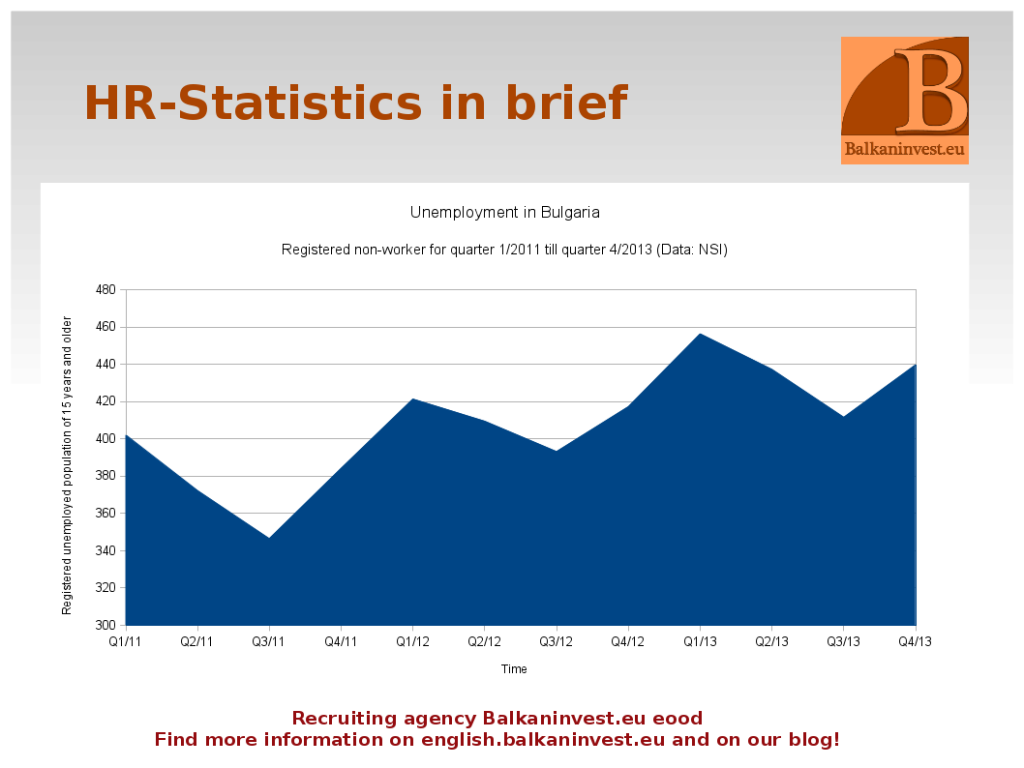The continuously high unemployment rate in Bulgaria has proven to be a persistent problem, but this is no exception to the general trend in Europe. In the following lines, we will try to go into some details concerning the latest labour trend, which we have posted earlier about: https://blog.balkaninvest.eu/weiter-hohe-arbeitslosigkeit-in-bulgarien/
How the phenomenon is being measured?
The unemployment rate is the percentage of unemployed from the total number of civilian work force, which is basically defined by the population size. The unemployment rate is an essential part of the unemployment statistics, because it is an indicator of the labour market and entire employment situation.
The data presented below is based on research of the Bulgarian Institute for Statistics and provides information about how unemployment has developed within the period 2011-2013.

Trends on Bulgaria’s labour-market
For 2011, the unemployment rate of the population aged 15 to 64 years is 11.4% and this percentage is continuously increasing over time. Until 2013 the share of unemployed people in the same age group has increased by 1.6%. It should be noted that this rate is always 2 to 3% higher for men than for women.
According to the figures supplied by the National Statistics Institute, in 2011 the unemployment rate of the population aged 15 to 29 amounts to 19.1%. In the following year this percentage has increased to 20.8% and in 2013 it reached a peak of 21.8% .
2013 in quarters
In order to represent the tendency more detailed, we will divide the year 2013 into quarters. In the first quarter of 2013, unemployment rate in Bulgaria was 13.8%. Subsequently, a decrease is recorded down to 12% in the third quarter. During the last three months, the rate has increased again by 1%. If we analyze the data by age, it is noticeable that the highest unemployment rate – 28.4% – is being observed among the representatives of the group 15-24 years, i.e. amongst the youngest working-population. In contrast, only 10.1% of the labour force aged 35-54 are unemployed.
